MercoPress. South Atlantic News Agency
Agriculture
-
Thursday, November 23rd 2023 - 08:31 UTC
Uruguay, China deepen bilateral ties
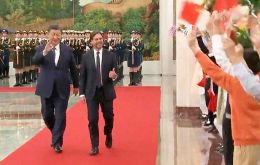
President Luis Lacalle Pou of Uruguay and Xi Jinping of China Wednesday announced after meeting in Beijing that new steps toward a bilateral free trade deal had been agreed upon.
-
Saturday, November 18th 2023 - 10:30 UTC
Argentine government and consultants anticipate a great 2023/24 agricultural year
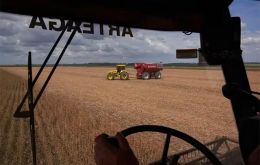
Under pressure from the Argentine incumbent presidential candidate for this Sunday's election runoff, and current Economy minister, Sergio Massa, grain markets in the country are forecasting a promising boom for the next agriculture year, with recovered crops and increased revenue to the tune of some US$ 20bn.
-
Saturday, November 18th 2023 - 10:12 UTC
Paraguayan corn exports fall sharply

According to a foreign trade report issued by the Central Bank of Paraguay (BCP) on Friday in Asunción, the South American country suffered a 25.4% drop in corn exports in October compared to the same period last year.
-
Thursday, November 16th 2023 - 07:57 UTC
Hard times ahead for wine in Chile; climate change hits the industry in northern hemisphere
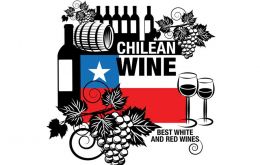
Hard times for the grape and wine sector in Chile, with a drastic drop in exports and slower domestic consumption, hitting the profits of both small and large industries and farmers.
-
Wednesday, November 15th 2023 - 09:38 UTC
Paraguay's agriculture exports keep growing

Paraguayan exports totaled US$ 14.438 billion in the first ten months of 2023, a 23.6% improvement from the same period last year, a foreign trade report released by the Central Bank of Paraguay (BCP) showed.
-
Monday, November 13th 2023 - 20:47 UTC
Argentine beef eaters turn to cheaper meats and veggie diets as incomes plunge and beef prices soar
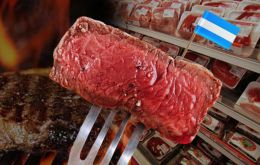
An Argentine university has elaborated a study on barbecue meat, one of the most common and popular beef cuts in the country, during a seven year period to include consumption habit changes and most importantly the increase in price of the product.
-
Friday, November 10th 2023 - 10:02 UTC
US market reopened for Paraguayan beef
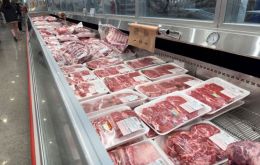
The United States has reopened its doors to Paraguayan beef after 25 years, President Santiago Peña announced Thursday together with US Undersecretary of State for Economic Growth, Energy and Environment José W. Fernández and US Ambassador Marc Ostfield, it was reported in Asunción.
-
Wednesday, November 8th 2023 - 19:06 UTC
Brazil to become world's leading chicken meat exporter in 2024
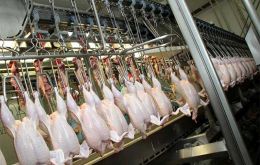
According to the United States Department of Agriculture (USDA), global chicken meat exports are expected to reach at least 14 million tons next year, marking a 2.91% growth compared to this year’s exports.
-
Tuesday, November 7th 2023 - 09:43 UTC
US Tyson Foods recalls 14 tons of chicken nuggets with metal pieces

Tyson Foods from Arkansas, USA, has been forced to recall 14 tons of chicken nuggets since metal pieces were found in the product. The firm said the voluntary recall is “out of an abundance of caution”.
-
Friday, November 3rd 2023 - 22:58 UTC
Confirmed avian flu case in the Falklands; Stanley becomes control zone until November 23
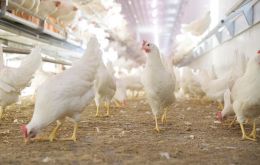
On Monday 30 October 2023 a Southern Fulmar was found dead at a Stanley property. As per current policy, while one dead bird does not reach the threshold of suspicion for avian influenza, birds that are not usually found in the Falkland Islands are routinely swabbed for surveillance. Unfortunately, this bird tested positive for highly pathogenic avian influenza. Given that this is an isolated case of one bird, that is only common off-shore, a full protection zone will not be declared. However, a temporary control zone has been declared and is attached. A declaration issued by the Falkland Islands Government (FIG) says: